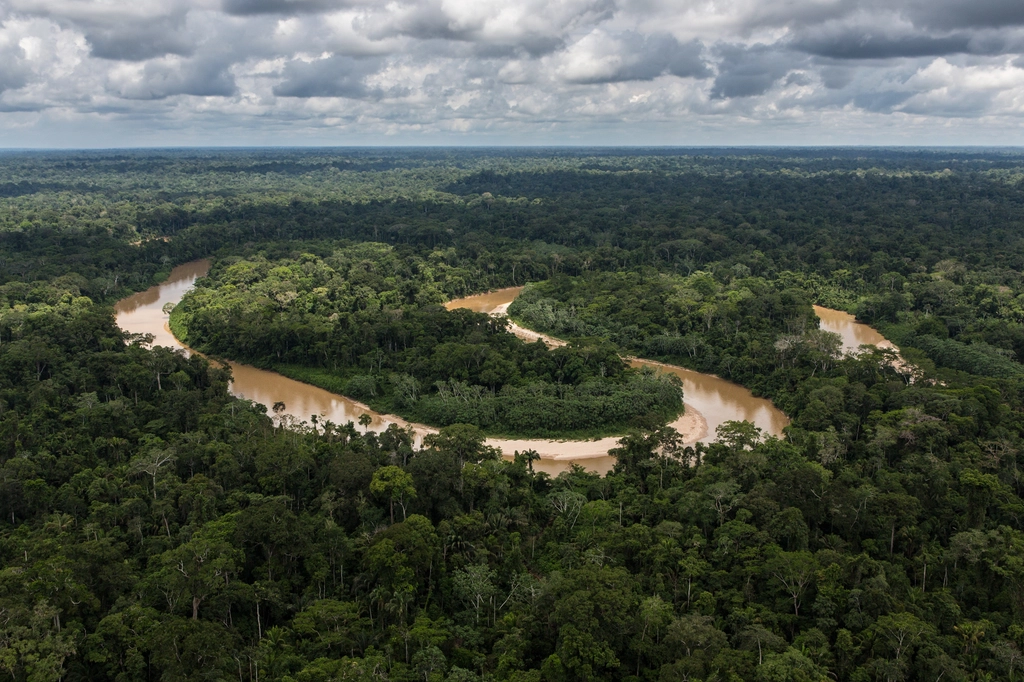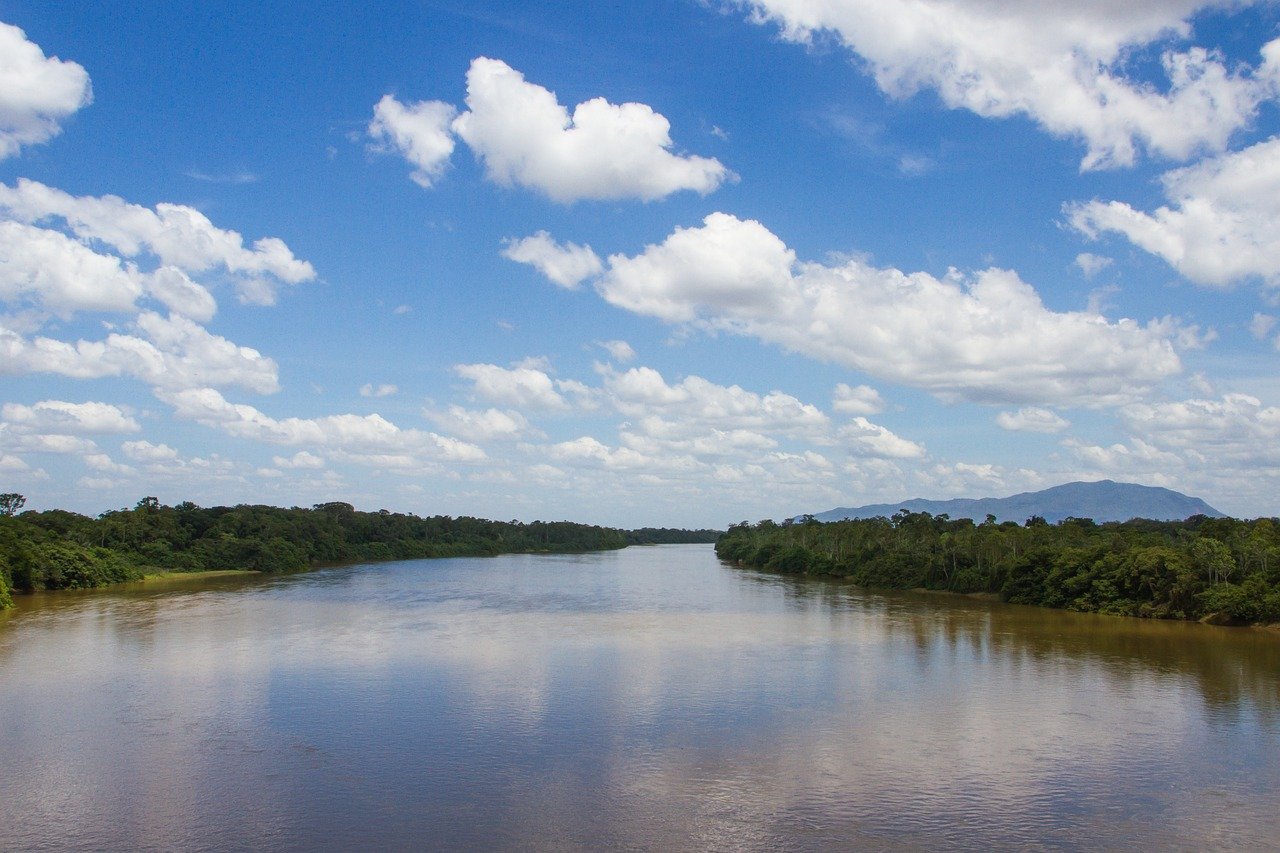The Amazon Rainforest is often referred to as the “lungs of the Earth,” a vibrant ecosystem that stretches across nine countries and covers over 5.5 million square kilometers. It is a lush, green sanctuary teeming with life, from the smallest insects to the majestic jaguars that prowl its depths. But what if, one day, this vital forest vanished? What would the world look like without its presence? The disappearance of the Amazon Rainforest would ripple across the globe, affecting climate, biodiversity, and even human society. Let’s delve into the intricate web of impacts that would ensue if the Amazon were to disappear.
The Impact on Global Climate
The Amazon Rainforest plays a crucial role in regulating the Earth’s climate. It acts as a massive carbon sink, absorbing millions of tons of carbon dioxide each year. Without the Amazon, this natural carbon storage would be lost, leading to increased levels of greenhouse gases in the atmosphere. This would accelerate global warming, potentially raising temperatures worldwide. The rainforest also influences weather patterns by releasing water vapor into the atmosphere, contributing to rainfall in distant regions. The loss of this moisture could result in droughts in areas that rely on the Amazon’s influence, disrupting agriculture and water supply.
Biodiversity Loss: A Catastrophic Consequence
The Amazon Rainforest is home to an astonishing array of species, many of which are found nowhere else on Earth. If the rainforest disappeared, countless plant and animal species would face extinction. The loss of biodiversity would not only be a tragedy for nature lovers but also a blow to scientific research. Many of the plants in the Amazon have medicinal properties that are yet to be discovered, holding the potential for new drugs and treatments. The disappearance of such a rich genetic library would be a permanent loss to humanity’s quest for knowledge and innovation.
Displacement of Indigenous Communities

The Amazon is not just a forest; it is home to over 400 indigenous tribes, each with its own unique culture and way of life. These communities rely on the rainforest for food, shelter, and medicine. If the Amazon were to vanish, these tribes would face displacement, losing their ancestral lands and traditional lifestyles. The cultural heritage and wisdom of these indigenous peoples, which have been passed down through generations, would be at risk. Their knowledge of sustainable living and forest management, invaluable in today’s world, could be lost forever.
Disruption of Global Water Cycles
The Amazon Rainforest is a key player in the Earth’s hydrological cycle. Its dense canopy traps moisture, creating a cycle of evaporation and precipitation that affects weather patterns far beyond its borders. The disappearance of this cycle would lead to significant changes in global water distribution. Regions that depend on the Amazon’s moisture could experience altered rainfall patterns, affecting crop yields and water availability. This disruption could have severe implications for food security and economic stability in many parts of the world.
The Economic Fallout

The Amazon is not only a natural wonder but also a vital economic resource. It provides timber, rubber, and other raw materials that support industries around the world. The loss of the forest would mean a decline in these resources, leading to economic turmoil for countries that rely on them. Moreover, the Amazon’s ecosystem services, such as pollination and carbon sequestration, are worth billions of dollars annually. Without these services, the cost of mitigating climate change and environmental degradation would skyrocket, straining economies and increasing the burden on global communities.
Impact on Global Oxygen Supply
The Amazon Rainforest is often nicknamed the “lungs of the planet” because it produces about 20% of the world’s oxygen. While the actual impact on oxygen levels might not be immediate, the disappearance of the Amazon would still have significant repercussions. The loss of this oxygen production could exacerbate air pollution problems in already polluted regions. It would also highlight the interconnectedness of global ecosystems, showing how the health of one region can affect the entire planet. The absence of the Amazon’s oxygen contribution would serve as a stark reminder of the importance of preserving our natural resources.
Altered Carbon Cycle Dynamics

The Amazon Rainforest plays a pivotal role in the global carbon cycle, acting as a buffer against climate change. Its trees absorb carbon dioxide during photosynthesis, storing carbon and releasing oxygen. Without the Amazon, this balance would be disrupted, leading to increased carbon levels in the atmosphere. The release of stored carbon from deforestation would further contribute to climate change, creating a feedback loop that accelerates global warming. This alteration in the carbon cycle would have far-reaching consequences, affecting everything from ocean acidity to weather patterns.
Soil Degradation and Erosion
The Amazon’s dense vegetation protects the soil from erosion and maintains its fertility. If the rainforest disappeared, the soil would be exposed to the elements, leading to rapid degradation and erosion. This would have devastating effects on agriculture, as nutrient-rich soil is essential for growing crops. The loss of fertile soil would make it difficult to sustain agriculture in the region, leading to food shortages and economic instability. The consequences of soil degradation would extend beyond the Amazon, affecting global food supply chains and contributing to a cycle of poverty and environmental decline.
Threat to Global Food Security
The Amazon Rainforest’s disappearance would pose a significant threat to global food security. The region is a vital source of biodiversity, providing genetic resources for crop development and resilience. The loss of this genetic diversity would make crops more susceptible to pests, diseases, and climate change, reducing agricultural productivity. Furthermore, the Amazon’s role in regulating global climate and water cycles is crucial for maintaining stable growing conditions. Without it, unpredictable weather patterns and altered rainfall could disrupt agriculture worldwide, leading to food shortages and increased prices.
A Call to Action: Preserving the Amazon

The potential disappearance of the Amazon Rainforest is a wake-up call for humanity. It underscores the need for immediate action to protect and preserve this invaluable ecosystem. Efforts to combat deforestation, promote sustainable land use, and support indigenous communities are essential to safeguarding the Amazon’s future. By working together, we can ensure that the rainforest continues to thrive, providing vital ecosystem services and benefits for generations to come. The fate of the Amazon is in our hands, and the choices we make today will shape the world of tomorrow.

Linnea is a born and bred Swede but spends as much time as possible in Cape Town, South Africa. This is mainly due to Cape Town’s extraordinary scenery, wildlife, and atmosphere (in other words, because Cape Town is heaven on earth.) That being said, Sweden’s majestic forests forever hold a special place in her heart. Linnea spends as much time as she can close to the ocean collecting sea shells or in the park admiring puppies.




